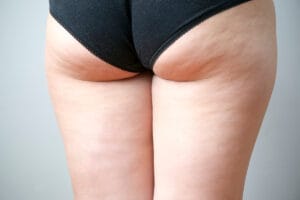Is Cosmetic Surgery a Viable Solution for Aging?
The UK Observer published an editorial over the weekend that offered contrasting opinions from British journalist Alice Hart-Davis and Annabel Jones, beauty director for the UK fashion magazine Grazia. The Observer asked them, “Can cosmetic surgery ever be a viable solution to aging?”
It seems the question is flawed from the beginning; can anything at all be a viable solution to aging? Unless you’re very optimistic about regenerative medicine and stem cell research, the aging process is a fact you must accept. So, the word “solution” is a little misleading; cosmetic surgery doesn’t have a “solution to aging,” but it does offer many options.
Those options for dealing with the cosmetic effects of aging are highly individualized. One person may be totally satisfied with “great skincare, clever makeup, and an amazing haircut” – but that doesn’t mean you or I need to be. This concept of individuality seems to be an underlying point of contention between the two journalists.
Ms. Jones naively asks, “What’s the point of having work done if you end up looking like an identikit version of every other woman in your doctor’s surgery?” She assumes that plastic and cosmetic surgeons aim for some objective, ideal form of beauty, with no concern for the patient’s autonomy or individual aesthetic. As any good physician should tell you, this assumption is way off the mark.
Cosmetic surgery can actually serve as an expression of autonomy, because it can enhance a person’s individual beauty in accord with that person’s desires. The end result should always reflect a combination of three things: the patient’s goals, the patient’s natural characteristics, and the surgeon’s aesthetic sense. Cosmetic surgery just isn’t as simple as many would lead you to believe.
Their arguments also beg the question, where do we draw the line between reasonable and excessive cosmetic interventions? Ms. Hart-Davis refers to “a slippery slope on which everyone will have their own stopping point,” and she’s correct; trying to make a distinction between cosmetic interventions that are deemed acceptable or not acceptable will likely use some arbitrary criterion, so the distinction must ultimately be made by the individual.
However, Jones employs the same “slippery slope†concept in absolute terms saying, “once you start [cosmetic surgery], there’s no going back.” It is unclear whether she means to argue that there is no “stopping point” or that there’s no returning to your “real” self once you’ve begun.
First of all, each individual can decide when enough is enough. Second, because aging and life change our bodies and selves over time, there’s no “going back” for any of us – with or without cosmetic enhancements.
I could continue picking apart both sides of the argument, but perhaps it would be more interesting to hear what our readers think: is cosmetic surgery a viable option for you? How much is too much?


